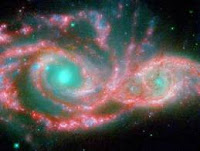The blue touchpaper: reflections on science and law.

It is interesting to consider how physical science and law differ. Science strives for strict explanation or proof. The law does not usually have that luxury. Based on the information available, a legal decision maker forms an opinion. That may be an opinion that person A is guilty of some offence or that B and C are bound by a contract or that D acted in a negligent manner causing damage to E etc. The "information available" (i.e. the evidence) may come from a multitude of sources though it is often from witnesses who observed some event. The judges have set down various standards of proof for criminal and civil matters. In criminal cases, guilt must be proved beyond a reasonable doubt. In civil cases, proof on a balance of probabilities will suffice. Those standards have been explained in a number of appellate decisions and, in the application of the standards, opinion may properly differ. The result is that law, unlike strict science, is more akin to a complex form of art which exists for the general good order of society in which it is necessary to be able to resolve disputes in a reasonable manner.
Whilst there is an important overlap between science and questions of proof in law - (e.g. as in the use of forensic evidence) - it seems that science has to pursue rigorous proof because its fundamental purpose is to seek to explain why things are. The law exists for more practical purposes and this requires that, from time to time, there will be errors and proper processes must be in place to rectify, as far as possible, those errors. However, the law cannot have the luxury of existing in pure theory but must exist with a degree of imperfection though this should never lead to complacency.
As ever, the reflections of readers are more than welcome ....
- Child Abuse ~ Children's Commissioner ~ Standards Of Proof In Sharp Contrast
The Guardian 25th January reported the views of Anne Longfield (The Children's Commissioner for England and Wales) as expressed in a brief interview on BBC Radio TODAY programme - Call to review the Burden of Proof in child sex abuse cases. Given...
- Dna ~ Low Copy Number / Mixed Samples ~ Admissibility Of Evidence
A previous post asked whether' DNA evidence' was truly the 'Gold standard' of forensic science - Law and Lawyers 5th August 2011. The Forensic Science Service, referred to in that post was closed on 31st March 2012. The closure...
- Dna: Is It Truly The "gold Standard" Of Forensic Techniques?
Updated 25th December 2011 Updated 6th August Some are attributing it to the "silly season" but a debate has broken out about restoration of capital punishment. I have no hesitation in declaring that I am opposed to it. Furthermore, it...
- Expert Evidence Reliability To Be Tested By Judges - Law Commission Report
Courts frequently receive various types of "expert evidence." Sometimes it can have a very powerful effect and it is common knowledge that reliance on expert evidence has resulted in some serious miscarriages of justice. Indeed, many examples...
- Bloody Sunday Inquiry - Standard Of Proof
Central to the Bloody Sunday Inquiry is the question whether the shooting of civilians by soldiers was justified. In 2004, the Inquiry was asked to make a ruling as to the standard of proof which would be applied. The ruling may be read here. An...
